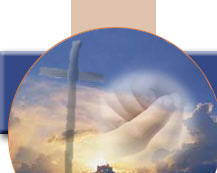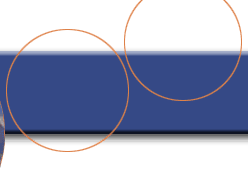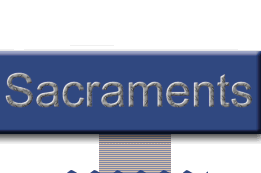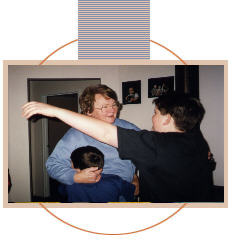



|
|
Overview |
|

![]()
The Journey and limitation
"He took our diseases and bore our infirmities."
Isaiah
In western culture when we greet people we enquire about their health – ‘how are you?’ Not that we really want to know. In fact, we'd rather not know!
Go to a card shop and look at the comic get well cards and you can see how our society views illness. We joke about it with cards about ‘the Epic of the Bedpan’, and the amorous adventures of patient and nurses. They associate with the story of visitors sitting around the sick person eating her chocolates, talking to one another and not with her.
We don't like facing illness. We all suffer from ‘dis-ease’ about illness. Our sick, elderly, and disabled quickly become hidden. It is hard to ‘keep in touch’ with them. We are ‘ill at ease’ in their presence. We don't know what to say.
On the other hand, our T.V. advertisements are full images of wonderful, young, healthy, slim, orthodontically perfect Venus and Adonis types. The fitness industry is well indeed as many seek to mirror these images.
Yet the experience of health is not the normal experience of the human person. Being ill or limited is a much more common human condition. Each day has its ill effects, its aches and pains, its coughs and spasms. The AIDS epidemic is forcing us to think about our perceptions of illness and our response to it.
Those living with disabilities have been trying to do this for us for years. People in wheelchairs or the home-bound are symbols for us all. They make us think, to reflect on what is true health and what it is to be truly ‘able’.
To see the sick, elderly the disabled and limited as symbols for us is where we start if we are going to have a healthy approach to illness and understand the Sacrament of Anointing.
Rather than start with our reaction to the sick person, we start rather with the sick person who can tell us so much about life and God because they are dealing with deep questions. The sick person, being drawn to deeper faith and meaning in life, draws us along on this journey.
There are many stages on this journey of illness. The journey includes the question ‘Why Me?’ In this question is the experience of sin. It is as though the sick person were saying ‘What have I done wrong to deserve this?’ and that we, who surround her, were saying, ‘It seems so unfair, she is such a good person’.
In this we are in touch with evil and its power. Of course illness has nothing to do with the goodness or sinfulness of the sick person. Yet illness is wrongly perceived as some sort of punishment from God. Jesus himself faced this with the Blind Man in John's Gospel: ‘Who sinned, this man or his parents, that he was born blind?’ (Jn 9:2) Indeed for the Jewish culture of the time of Jesus there was the perception of a strong relationship between sin and illness.
The accent for Jesus, however, was not so much on sin, but on discovering something very deep and sacred in the experience of illness. The accent is on the sick person who, through this experience, discovers the meaning of life in a new way and who discovers God in a particular way. Jesus' answer about the blind man is ‘he was born blind so that God's work might be revealed in him’. (Jn 9: 3)
The sick are revealing ‘God's work’ to us. So their worth is not in their ability to work or bring home the pay packet, nor in their ability to play in the Tennis team on Saturday. Their worth is in their being ill and revealing meaning and God to us. They make us think, reflect. They find new meaning and a God who transforms the destructive power of illness and reveal that new meaning and God to us all.
We are not saying here that illness is a blessing, yet we are seeing illness or limitation as an opportunity for a new moment of grace.
St. Paul speaks of the sufferings of Jesus, the one who was both weak and strong, (2 Cor.13:4) as a constant lesson for us of the transforming power of illness and suffering; ‘we suffer with him so that we may be glorified with him’ (Rm. 8:17). Illness draws us into the power of the transforming Spirit.
The word ‘Christ’ means ‘anointed’. Through laying on of hands, prayer and anointing with oil in the Sacrament of the Sick the sick person becomes one with ‘the Christ’, the anointed one. The sick person is a symbol of Christ and his passage through weakness and death to new life. The sick person draws meaning out of her illness. We, who surround her, draw meaning out of our experience of her illness. We move from being ‘ill at ease’,’dis-eased’ and we are drawn beyond the great destructive power and meaning of sickness by our ministry to the sick person.
In Christian healing, sickness loses its destructive power, its negative hold over us. Ministry to the sick seeks to move the destructive symbol of illness to a life growth symbol. The sacrament of the sick is an invitation to transformation, a conversion. And it is not even too much to hope that physical health can be restored even in the face of great destructive odds. This is an aspect of healing that the charismatic Christian groups are asking us to emphasise more. We remember, however, that in Christian healing, death is seen as the final healing.
The Rite calls upon the Spirit to transform. In the Laying on of Hands and in the Anointing with oil a re-shaping of the meaning of illness takes place. In Christian terms this is through HOPE.
The sick person communicates to us in his or her illness and the Word speaks of God who not only creates us, but also heals and redeems. This is the ‘new creation’ in Christ that sees sickness, not as a punishment, but as part of our dying and rising with Christ. In contrast to questions about evil and suffering the perspective of Jesus strongly says that illness can terminate in HOPE because the sick person is a symbol who proclaims the victory of the Cross. The resurrection followed the suffering of Jesus. New possibilities follow the illness of the sick person.
This is a conquest of guilt and sin and evil. The ‘Why me?’ question gives way to the mystery of illness and solidarity with the suffering and death of Jesus given for the life of the world. This is truly the appreciation of God's presence in our life's journey.
Jesus cried on the Cross ‘My God, my God, why have you abandoned me’. It was in that emptiness that he discovered God when all seemed absolutely desolate. As Jesus Christ was drawn out of darkness and death to light, so too is the sick person and all of us drawn to this light. In illness we can grow closer, we become more compassionate, we grow in understanding. We grow in wholeness, in health, in holiness.
The community needs to move from un-ease, dis-ease felt in the presence of an illness to hope and new possibilities. All sick and limited, need to be included in their state of dis-ease in our communities. Such inclusive communities will conquer guilt, sin, evil and darkness and will be enriched by the revelation of ‘God' work’ given to them.
We see expressions of this inclusive type of ministry especially when anointing is celebrated communally and when Eucharist is taken directly to the sick from Sunday Eucharist.
In all this we see that Anointing is not just a private sacrament for the individual but part of ‘God's work’ in the world. The sick have a role in the wider mission of the church to the world. This is the framework of Catholic teaching that respects human life in all forms, unwanted, deformed, disabled. This is the mystery of ‘God's work’. We appreciate God in such a mystery.
Further Reading:
Poschmann, Bernhard. "Penance and the Anointing of the Sick."
Herder and Herder, New York, 1964.
A classic that pertains to both Reconciliation and Anointing.
|
|
|


Copyright © Anthony Kain 2009